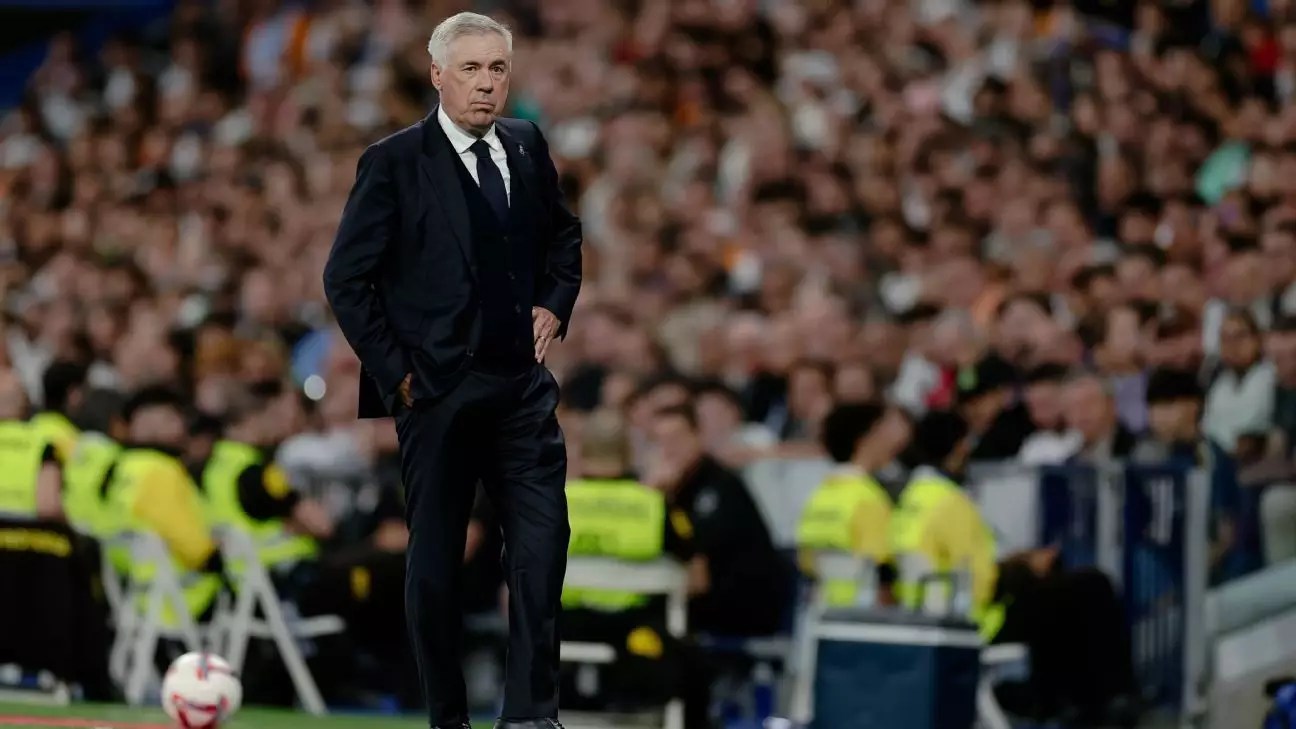In recent events surrounding the catastrophic flash floods in Valencia, a significant debate has emerged not only within the realm of sports but also concerning the moral responsibilities of organizations and the intersection of community well-being and competitive play. The devastating natural disaster, which resulted in the loss of at least 217 lives, has drawn attention from various stakeholders in the football world, particularly La Liga, where some matches proceeded despite the severity of the situation.
Football amidst Tragedy: A Controversial Decision
Real Madrid’s head coach, Carlo Ancelotti, voiced his concerns following the unfortunate events, suggesting that all football activities in Spain should have been suspended in light of such a tragedy. His sentiments echoed throughout the football community as matches, including the scheduled clash between Madrid and Valencia, were postponed, but other games took place much to the dismay of players and coaches alike. Ancelotti articulated the emotional toll on players and staff, underscoring the notion that discussing football in such dire circumstances can seem trivial and disrespectful to those affected.
Various coaches, including Atlético Madrid’s Diego Simeone, questioned the rationale behind allowing professional matches to proceed amid widespread calamity. Simeone’s assertion that continuing the games “makes no sense” reflects a growing sentiment among sports professionals—that sport should take a backseat in respect to human suffering. This raises an essential discussion point: when is it appropriate for sporting events to pause, and who holds the authority to make such decisions?
One of the notable points that emerged from Ancelotti’s statements was the limited power coaches and players have in influencing decisions made at higher levels of football management. Ancelotti pointed out that, despite a shared desire to halt games, their roles do not afford them the agency to enforce change. This dynamic highlights a significant concern within professional sports: the disparity between the governing bodies and the individuals primarily involved in the game.
If players and coaches collectively believe that games should be canceled in light of a tragic event, one must question the authority of the governing bodies that allow competition to continue. Ancelotti’s remarks about the disproportionate “power being equal to zero” for coaches emphasize a lack of consensus in decision-making processes that directly affect the teams and communities at large.
In response to the floods, La Liga’s collaboration with the Red Cross to raise funds for those impacted signifies positive community engagement. It is commendable for a sports organization to take steps toward support and recovery efforts following a disaster. However, one must ponder whether such actions can compensate for the perceived insensitivity of allowing matches to occur in the aftermath of tragedy. The symbolic weight of sports can either uplift a community or further complicate their grief, thus organizations must tread carefully in their decisions.
Ancelotti and other players have emphasized the importance of recognizing the humanitarian aspect over the competitive spirit. Football, when viewed as merely a game, can appear disjointed from the realities of life affecting thousands. The poignant remark made by Ancelotti that “football is the most important of the least important things” serves as a reminder that, amid agonizing situations, a game should serve to unite and not distract from the solemnity of human suffering.
Despite the emotional challenges posed by such tragedies, sports professionals have a duty to maintain a sense of professionalism. Training continues, and preparations for future matches are undertaken with an understanding of the necessity to perform and fulfill commitments. Ancelotti’s determination to prepare for the upcoming match against AC Milan illustrates the balance that must be maintained between professional responsibilities and personal empathy.
As football continues to thrive as a pivotal part of Spanish culture, the overarching question remains: how can the sport foster an environment that prioritizes human dignity alongside competitive integrity? As members of the football community navigate through the aftermath of tragedy, their collective experiences will undoubtedly shape future approaches to decision-making in similar circumstances.
It is evident that the responses to sorrowful events should call into question the role that sport plays within societal structures. With greater collaboration and open discourse about such critical issues, the future of football could foster a more profound respect for community and humanity over mere competition.


Leave a Reply